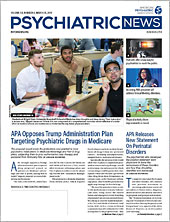Children born to mothers who have persistent anxiety from late pregnancy to three years postpartum have an increased risk of delays in communication and personal-social development, according to a study in the Journal of Affective Disorders. The findings highlight the importance of early detection and support for mothers experiencing distress during pregnancy and the postpartum period and their offspring.
Muhammad Kashif Mughal, M.B.B.S., Ph.D., a postdoctoral fellow at the University of Calgary, and colleagues evaluated data from the three-year follow-up to the All Our Families study, an ongoing study of mothers and children in Calgary, Canada. The study, begun in 2008 as the All Our Babies study, includes self-reported assessments of mothers’ distress (including depression, anxiety, and stress) at multiple time points ranging from before the 25th week of gestation up to three years postpartum. Also included are parent-reporting tools to measure child development at age 3 years across five domains: communication, gross motor, fine motor, problem solving, and personal-social. For the current study, the researchers analyzed data from 1,983 mother-child pairs.
Overall, 4.7 percent to 6.4 percent of the mothers reported depressive symptoms at four time points: less than 25 weeks gestation, 34 to 36 weeks gestation, four months postpartum, and one year postpartum. Also, 13.8 percent to 18.5 percent of mothers reported anxiety symptoms at six time points: less than 25 weeks gestation, 34 to 36 weeks gestation, four months postpartum, one year postpartum, two years postpartum, and three years postpartum.
Statistical analysis revealed that mothers with persistent high anxiety symptoms and early postpartum depression were more likely to report personal-social delays in their children at age 3 years compared with those mothers without such symptoms. The researchers also found that persistent subclinical and high anxiety symptoms were associated with an increased risk of communication delay at age 3 years. Furthermore, the relationship between maternal anxiety and risk of child communication delay was dose-dependent.
“The proportion of children with risk of communication delays were highest in children of mothers experiencing clinical anxiety symptoms, followed by the subclinical, and the lowest for minimal symptoms,” Mughal told Psychiatric News.
Mughal said that the results carry important implications for both practice and research, in which physicians and researchers traditionally rely upon clinical cutoffs to identify patients for intervention and follow-up.
“The mothers experiencing subclinical symptoms are usually off the radar of health care professionals and are not identified by traditional cutoff approaches,” Mughal said. “The study highlights the importance of redefining ‘at-risk’ populations and moving from established cutoff approaches to ones that capture the chronicity and severity of symptoms during pregnancy and the postpartum period.”
No statistically significant associations were found between maternal depression, anxiety, and stress symptoms over time and children’s gross motor, fine motor, and problem-solving development at 3 years. However, the researchers identified other risk factors for these domains, such as maternal age greater than 35 years, male sex, and preterm birth for gross-motor delays; low maternal education and male sex for fine motor delays; and low family income and preterm birth for problem-solving delays. Having a family with two or more children was a protective factor for fine motor development.
“We need further studies to investigate the impact of these risk factors on child delays,” said Mughal.
Mughal added that the findings call for a shift in perinatal health care to a model that emphasizes multiple perinatal screenings for maternal distress using validated tools and chronicity of symptoms.
“Ultimately, improving processes for routine, timely, and appropriate maternal mental health assessment, treatment, and referral at multiple time points during the perinatal period will increase the quality of life in pregnant women and will help reduce the likelihood of adverse birth outcomes, postpartum mental health concerns, and adverse effects on offspring,” Mughal said.
This study was supported by funding from Alberta Innovates, the Alberta Children’s Hospital Foundation, and the Maxbell Foundation. ■
“Trajectories of Maternal Distress and Risk of Child Developmental Delays: Findings From the All Our Families (AOF) Pregnancy Cohort” can be accessed
here.

